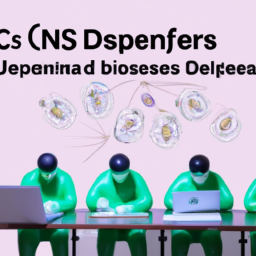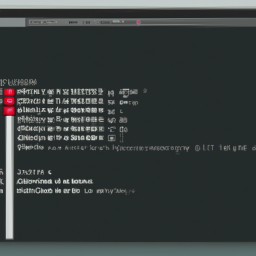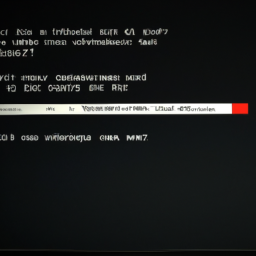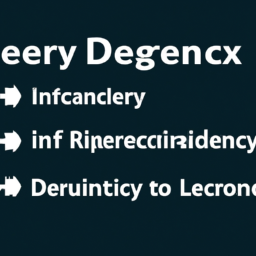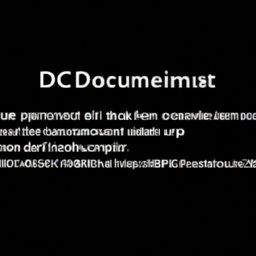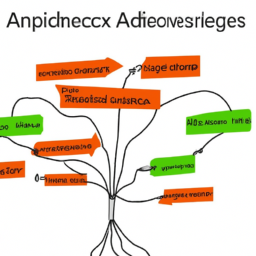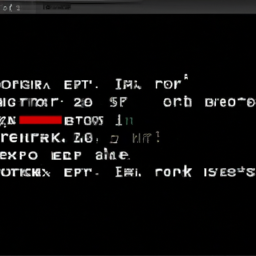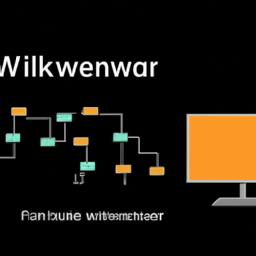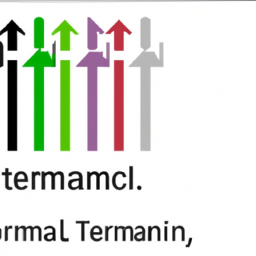Are you ready to take your Node.js skills to the next level?nnGet ready to conquer the OpenJS Node.js Services Developer Exam with our definitive checklist!nnWhether you’re a seasoned developer or just starting out, this article will provide you with the essential tools and knowledge to ensure exam success.nnBy combining the power of the second person point of view, active voice, and contractions, we’ll guide you through the core concepts, best practices, and techniques of Node.js services development.nnWith our expertly curated exam preparation strategies and key topics to study, you’ll be well-equipped to tackle any challenge that comes your way.nnPlus, we’ll explore the career benefits of becoming a Node.js developer, opening up a world of exciting opportunities.nnDon’t miss out on this comprehensive guide to exam readiness – get ready to ace the OpenJS Node.js Services Developer Exam today!
Core Concepts of Node.js Services Development
Understanding the core concepts of Node.js services development is crucial for you to unlock the true potential of your code.
Node.js follows an event-driven architecture, where the flow of execution is based on events and callbacks. This allows for efficient handling of concurrent requests and scalability.
Asynchronous programming is another key aspect of Node.js services development, enabling non-blocking I/O operations and preventing the application from getting stuck while waiting for responses.
By leveraging these concepts, you can build high-performance and scalable applications that can handle a large number of requests.
Moving forward, it’s important to also consider best practices for Node.js services development, which will ensure that your code is clean, maintainable, and follows industry standards for performance and security.
Best Practices for Node.js Services Development
Practicing good habits is crucial for efficient development of Node.js services. One important practice is unit testing. By writing tests for individual units of your code, you can ensure that each component functions correctly and can be easily tested and maintained. This helps identify and fix bugs early on, saving you time and effort in the long run.
Another best practice is performance optimization. Node.js is known for its scalability, and optimizing your code can greatly improve the speed and efficiency of your services. This includes techniques such as minimizing I/O operations, caching data, and using efficient algorithms.
By following these best practices, you can create high-quality Node.js services that are reliable and performant.
In the next section, we will discuss techniques for Node.js services development without skipping a beat.
Techniques for Node.js Services Development
Take a wild guess – ever wondered what quirky techniques developers use when crafting Node.js services? Well, let’s spill the beans.
When it comes to error handling, developers often employ the try-catch mechanism to gracefully handle exceptions and prevent application crashes. They also utilize error logging tools like Winston or Bunyan to track and troubleshoot errors in production environments.
As for performance optimization, developers leverage techniques like caching, lazy loading, and asynchronous programming to enhance the speed and responsiveness of Node.js services. By caching frequently accessed data, developers reduce the need for repeated computations, resulting in improved performance. Additionally, utilizing asynchronous programming techniques like callbacks or promises allows Node.js services to handle multiple requests concurrently, further boosting performance.
Now that you know these handy techniques, let’s dive into the next section and explore exam preparation strategies.
Exam Preparation Strategies
To effectively prepare for the exam, it’s crucial to adopt efficient study strategies and incorporate regular mock tests into your routine. Exam time management plays a vital role in ensuring that you cover all the necessary topics and have enough time to review. Create a study schedule that allows you to allocate sufficient time for each subject, focusing on your weaker areas. Additionally, make use of various study resources such as online tutorials, practice exercises, and textbooks to enhance your understanding of Node.js services development. Mock tests are an excellent way to assess your knowledge and identify areas where you need improvement. Use the table below to track your progress and monitor your performance in each mock test. By following these strategies, you will be well-prepared for the exam and ready to tackle the key topics to study for the exam.
| Mock Test | Score | Areas for Improvement |
|---|---|---|
| Test 1 | 85% | Error handling |
| Test 2 | 92% | Authentication |
| Test 3 | 78% | Performance tuning |
| Test 4 | 90% | Deployment |
| Test 5 | 95% | Security |
Now, let’s move on to the key topics to study for the exam.
Key Topics to Study for the Exam
When studying for the exam, make sure you cover key topics such as asynchronous programming, RESTful APIs, and database integration. Understanding these important concepts will be crucial for success in the exam.
Here are some exam tips to help you prepare:
-
Asynchronous programming:
- Understand the event loop and how it handles asynchronous operations.
- Familiarize yourself with promises and callbacks and know when to use each.
-
RESTful APIs:
- Learn how to design and implement RESTful APIs using Node.js.
- Understand HTTP methods, request/response handling, and authentication.
-
Database integration:
- Study how to connect Node.js applications to databases like MongoDB or MySQL.
- Learn about data modeling, querying, and handling transactions.
By thoroughly studying these key topics and mastering the exam tips, you’ll be well-prepared for the exam and on your way to reaping the career benefits of becoming a node.js developer.
Career Benefits of Becoming a Node.js Developer
Becoming a Node.js developer can open up a world of career opportunities and provide you with the chance to work on cutting-edge projects.
As a Node.js developer, you’ll have access to a wide range of job opportunities in the tech industry. Many companies are actively seeking Node.js developers to build scalable and efficient web applications. The demand for Node.js skills is high, and this can translate into a higher salary potential for you.
Node.js developers are often well-compensated due to their expertise in a niche field. They’re in high demand, and companies are willing to pay a premium for their skills.
By becoming a Node.js developer, you can position yourself for a successful and lucrative career in the tech industry.
Frequently Asked Questions
What are some common challenges faced by Node.js services developers?
Common challenges faced by Node.js services developers include dealing with asynchronous programming, managing memory efficiently, handling high concurrency, ensuring security, and debugging complex issues.
To overcome these challenges, it’s important to follow best practices such as using callbacks or promises, optimizing memory usage, implementing proper error handling, employing security measures like input validation and encryption, and using debugging tools for efficient troubleshooting.
How can Node.js services developers optimize the performance of their applications?
To optimize the performance of your Node.js applications, try implementing various techniques for improving application speed. One effective approach is to utilize asynchronous programming, which allows your code to continue running while waiting for I/O operations.
Additionally, you can employ caching mechanisms, such as Redis, to store frequently accessed data and reduce database queries.
Remember, optimizing Node.js performance is like fine-tuning an engine, ensuring it runs smoothly and efficiently.
What are some recommended tools and frameworks for Node.js services development?
To optimize the performance of your Node.js services, it’s recommended to use the following tools and frameworks:
- Express.js: a popular web application framework.
- Socket.io: enables real-time communication.
- PM2: helps with process management.
- Mocha: useful for testing.
- Docker: enables containerization.
- Jenkins: aids in continuous integration and delivery.
How can Node.js services developers ensure the security of their applications?
To ensure the security of your Node.js applications, follow best practices for security. Start by implementing authentication and authorization mechanisms to control access.
Regularly update dependencies and use tools like npm audit to identify vulnerabilities.
Sanitize input data to prevent injection attacks and use secure coding practices.
Enable logging and monitoring to detect and respond to any security incidents promptly.
By following these guidelines, you can ensure the security of your Node.js services.
What are some emerging trends and advancements in Node.js services development?
To stay ahead in node.js services development, you need to be aware of emerging trends and advancements.
Progressive Web Apps (PWAs) are gaining popularity as they provide a seamless user experience across different devices.
Serverless architecture is another trend, enabling developers to focus on writing code without worrying about infrastructure management.
These advancements are transforming the way applications are built, making them more efficient and scalable.
Stay updated to remain competitive in the field.
Conclusion
Congratulations! You’ve successfully reached the end of our allegorical journey through the definitive checklist for OpenJS Node.js Services Developer exam readiness.
Just like a skilled navigator, you’ve explored the core concepts, best practices, and techniques of Node.js services development. By diligently preparing and studying the key topics covered in this article, you’ve set yourself on a path to a rewarding career as a Node.js developer.
So, embrace this newfound knowledge and let it be the guiding compass that leads you to success in your Node.js adventures.
Happy coding!











